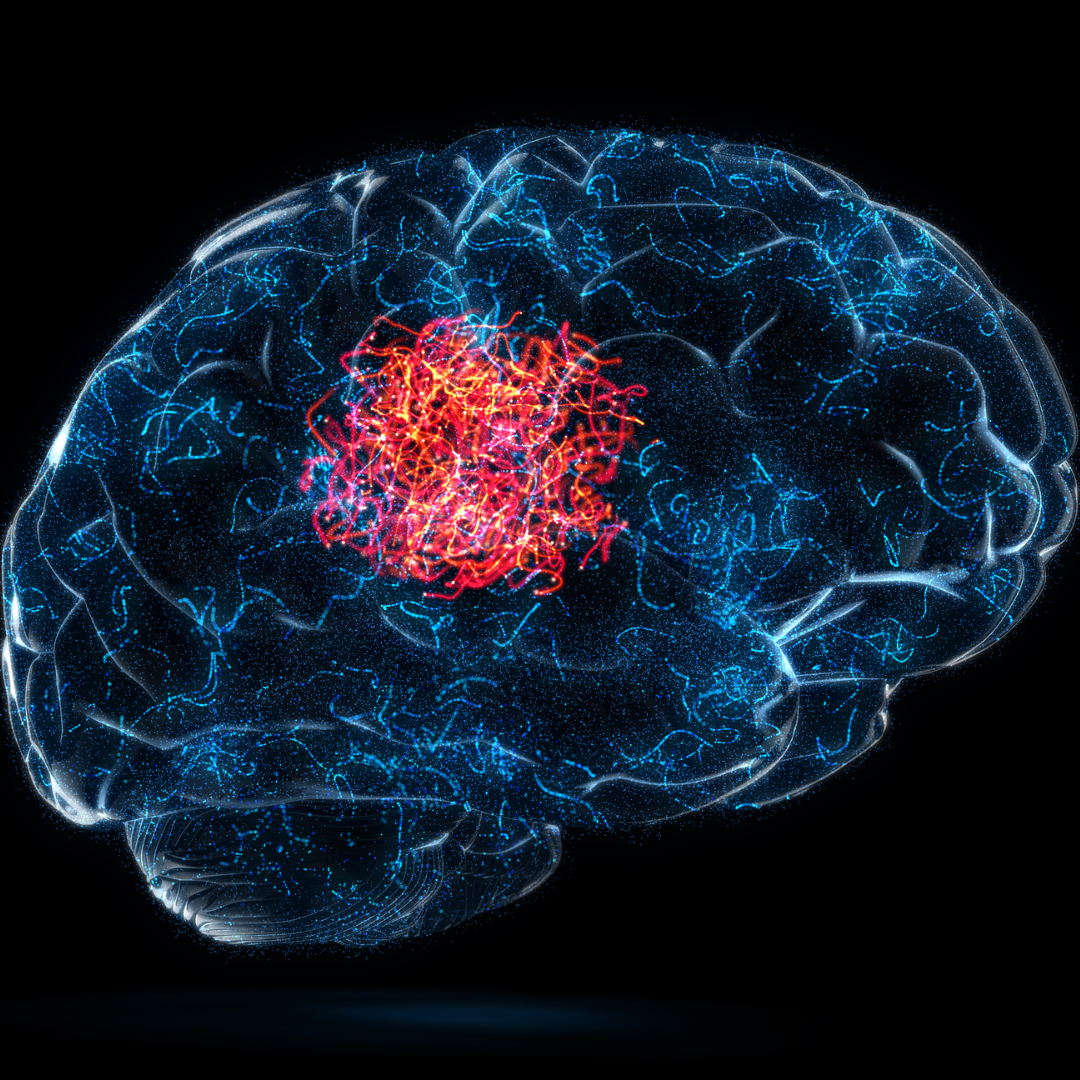With the number of Americans living with Alzheimer’s Disease having risen to over five million, and expected to double by 2040, it is becoming clear as day that AD is an issue to be put in priority in terms of national public health. As we’ll see later on, one of the most crucial factors to tackle this problem is to detect it at its earliest stages, as this can make a tremendous impact on the patient’s lives, as well as the effectiveness of the healthcare providers. Early detection of Alzheimer’s Disease can help with making crucial decisions and lifestyle changes. And while this hasn’t been an easy task to solve, recent advancements in AI technology are now giving us the tools we need to change our lives.
Understanding Alzheimer’s Disease
Alzheimer’s disease is the most common cause of dementia, which is a state of gradual degeneration of the brain. Specifically, Alzheimer’s forces the brain to shrink, and its cells to eventually die. Understandably, this affects the patient’s ability to function in their everyday life, at first imperceptibly, then at a crucial degree.
One of the most obvious symptoms of Alzheimer’s is memory; people with Alzheimer’s disease may forget appointments or conversations, repeat statements and get lost in familiar places, to name a few. Alzheimer’s however can also affect reasoning, like multitasking and dealing with numbers, decision making, like not knowing how to react in an unfamiliar situation, and even finding it hard to perform familiar routine activities like cooking or cleaning.
Needless to say, the inability to perform tasks and, gradually, even taking care of oneself, takes a heavy toll on the patient, as well as their caretakers. According to an economic model reported by the CDC, each patient with dementia spends approximately $64,000 in hospitals alone. On top of this, the patient may not be able to work anymore, and the caretakers may need time from work to be close to the patient, thus leading to a substantial financial burden for both parties. This of course comes alongside the heavy emotional burden of watching yourself or your loved ones gradually losing themselves.
The Importance of Early Detection
In contrast, reading the signs of early dementia and early detection of Alzheimer’s Disease can be very beneficial both for patients and caretakers
More effective treatments
The most crucial and straightforward gain for the patient is that they can slow down the disease or even halt it altogether, thus enjoying many more years of healthy and active life. Early detection and intervention open the door to a range of treatment options that can be highly effective.
This is not only because the patient can treat their condition early; it’s also because treatments are actually more effective when adopted at an early stage. Cholinesterase inhibitors such as donepezil (Aricept), rivastigmine (Exelon), galantamine (Razadyne), Memantine, and other treatments have all been proven to work better when introduced in the early stages of dementia.
More involvement in the treatment
Further, early detection means that the patient can be more active in the decision-making process regarding their treatment. With an early diagnosis, they have the opportunity to explore and understand all available treatment options in depth. This enables them to make informed decisions about their own life, considering the potential outcomes, side effects, and overall impact of each choice. They can seek second opinions, engage in discussions with healthcare providers, and even consider alternative or complementary therapies. This level of involvement empowers patients, giving them a sense of control and agency over their health journey.
Restructuring your lifestyle
Being informed of your condition also means that you can knowingly readjust your lifestyle. With this awareness, you can make deliberate choices to enhance your well-being. For example, switching your diet to a Mediterranean style can help you include antioxidants and anti-inflammatory properties that are beneficial for brain health. Or, otherwise, a DASH diet that emphasizes vegetables, fruits, whole grains, and low-fat dairy products can help maintain blood pressure and can be crucial for better cognitive function.
Introducing more exercise into your life can also be beneficial. Aerobic exercise for example, such as running, swimming, or cycling, improves cardiovascular health, which enhances the blood flow in the brain and consequently reduces the risk of cerebrovascular diseases. Otherwise, yoga and other types of exercises that focus on balance and flexibility reduce the risk of falls, a risk that can be particularly important at older ages.
Better resource management for healthcare providers
To an extent, healthcare providers can benefit substantially from early detection, primarily because early cases put a lighter burden on the patient, and thus do not require hospitalization and other significant resources on their part. And, since early detection means that the disease can be slowed down significantly, healthcare providers can prolong the stages that are easier to treat. Moreover, healthcare providers are given the chance to create a treatment plan and give advice to the patients and caretakers that can make a difference.
Traditional Methods of Detection
How do you proceed if you decide to check yourself for signs of dementia? There are a number of ways that are used by healthcare providers and researchers, mostly having to do with signs of mental decline. The most common and fastest are questionnaires that check your cognitive abilities, like the Montreal Cognitive Assessment (MoCA), the MMSE, and Mini-Cog. These tests present high accuracy in their assessment, but because they rely on documenting decline, many times they are introduced after brain damage has already occurred to a severe extent.
Other techniques include structural imaging for information about the shape, position, or volume of the brain tissue with the use of MRI and CT scans, functional imaging to show if various brain regions are working properly with the use of PET scans, and molecular imaging to detect specific cellular or chemical changes, using PET and fMRI. Needless to say, these methods have a cost that renders them inaccessible to people who have not already been diagnosed.
Challenges and Barriers to Early Detection of Alzheimer’s Disease
The above proves to be a hard reality for those who want to have access to as early detection of dementia as possible. And the interest is high. According to the CDC, while nearly 90% of Americans would want to know if they are suffering from Alzheimer’s disease if they experienced relevant symptoms, more than half of people 45 and older have not talked with a healthcare provider about their concerns, even when self-diagnosed with cognitive decline.
Lack of awareness of the severity of such diseases can be a strong factor in this, as well as the lack of dementia tests being integrated into PCPs’ examinations. However, these are not the only factors that play a role in the lack of early detection.
Another component is the knowledge gaps and misconceptions that PCPs may have concerning neurodegenerative diseases. It is characteristic that less than half of those with Alzheimer’s and other dementias have their diagnoses documented in their medical records, as reported by Minna Löppönen et al..
And of course, there is a lack of mental health equity that affects the chance of getting an early detection. The CDC reports that while African Americans are two times more likely to have Alzheimer’s or another dementia than whites, they are only 36% more likely to receive a diagnosis and that both African Americans and Hispanics with cognitive impairment are less likely than whites to say that a doctor has told them they have a “memory-related disease.”
How Digital Tools Enable Early Detection of Alzheimer’s Disease
As is common in the past years, this unsurpassable Gordian Knot can only be cut using the knife of AI innovation. A small number of companies use AI models to make dementia tests more accurate, more accessible to everyone regardless of financial status and proximity to healthcare facilities, and most importantly tailor-made for as early detection as possible. Companies like Ellipsis, Kintsugi, Canary Speech, and of course, LANGaware are revolutionizing the early detection of Alzheimer’s disease (alongside mental health issues), and are helping healthcare providers get a fast screening process early on, and a monitoring tool later.
Embracing Early Detection for Better Lives
Early detection of a condition like dementia is key for patients to be actively involved in their treatment decisions, make informed lifestyle adjustments, and improve their quality of life. Being aware of their condition enables patients to prioritize what is important to them and knowingly plan for the future. Now that early detection is possible with new AI technology and effective treatment can be applied, the only puzzle piece missing is the awareness that proactive screening can allow patients to live well and enjoy many more years of healthy, active lives.







